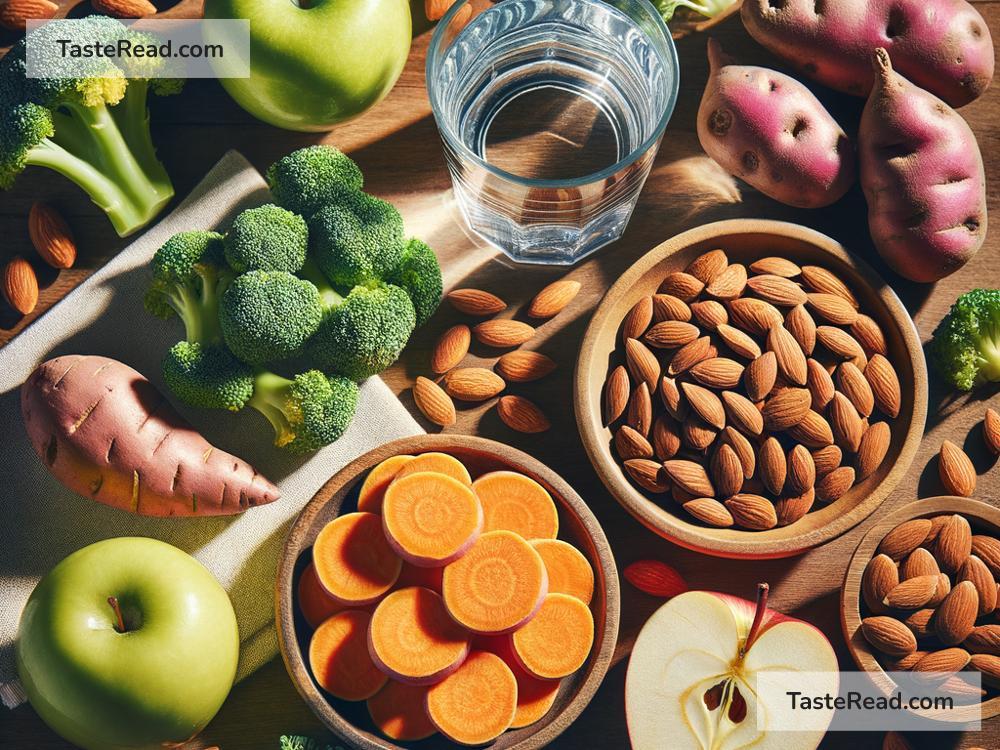Foods for Reducing Renal Stress: Healthy Choices for Happy Kidneys
Our kidneys play a critical role in keeping our bodies healthy. These two bean-shaped organs act as filters, removing waste products, excess water, and toxins from our blood. They also help regulate blood pressure, produce important hormones, and maintain the balance of minerals in the body. Because the kidneys work so hard every day, over time they can become strained, especially if we don’t take care of them. Poor dietary choices, dehydration, and certain health conditions can increase “renal stress,” which is another way of saying that our kidneys are under pressure and need extra care.
The good news is that eating the right foods can help reduce renal stress and promote kidney health. Whether you’re looking to prevent kidney problems or manage existing issues, making small changes to your diet can make a big difference. In this article, we’ll explore some kidney-friendly foods and tips to keep your kidneys happy.
Why Diet Matters for Kidney Health
Everything we eat and drink passes through the kidneys as they filter and process nutrients. If we consume too much of certain things—like salt, sugar, or protein—it can make the kidneys work harder. Over time, this extra effort can lead to kidney damage. Additionally, conditions like high blood pressure and diabetes, which are often affected by diet, are the leading causes of kidney disease.
By making smart food choices, we can not only ease the workload of our kidneys but also manage or prevent related health issues. Below are some foods and dietary habits to consider for reducing renal stress and supporting kidney health.
1. Drink Plenty of Water
Before diving into specific foods, it’s important to talk about hydration. Water helps flush out toxins and keeps the kidneys functioning properly. Dehydration can strain the kidneys, since they have to work harder to concentrate urine. Aim to drink adequate water throughout the day. However, if you have kidney disease and are advised to limit fluids, follow your doctor’s recommendations.
2. Fresh Fruits and Vegetables
Fruits and vegetables are packed with vitamins, minerals, and antioxidants that support overall health, including kidney health. Some options are better than others for reducing renal stress, especially if you’re looking to manage potassium or phosphorus levels (common concerns for people with kidney disease).
- Low-potassium choices: Apples, berries (like blueberries and strawberries), grapes, pineapple, and cabbage are kidney-friendly options for those watching their potassium intake.
- Leafy greens: Spinach and kale are great sources of nutrients like magnesium, but they can be high in potassium. If you have kidney disease, consult your doctor before adding too many leafy greens to your diet.
- Cauliflower and broccoli: These vegetables are low in potassium and rich in fiber, making them excellent choices for kidney health.
3. Whole Grains and Fiber
Whole grains such as brown rice, quinoa, and oats contain fiber, which can help prevent kidney stress by promoting healthy digestion and preventing constipation. Fiber also helps regulate blood sugar levels, reducing the risk of diabetes—a major contributor to kidney problems.
For individuals with advanced kidney disease, however, certain whole grains might be high in phosphorus—something that may need to be limited. In such cases, a healthcare provider or dietitian can guide your choices.
4. Healthy Proteins
Protein is essential for muscle repair and overall bodily functions, but eating too much protein can put strain on the kidneys. This is because the kidneys are responsible for processing the waste products that come from protein in the diet.
Choose lighter protein options like:
– Fish and chicken: These are lean sources of protein that are easier for the kidneys to process than red meat.
– Plant-based proteins: Lentils, beans, and tofu are excellent options that can also reduce reliance on animal protein.
If you have existing kidney issues, the amount of protein in your diet should be carefully managed. A healthcare provider can help you plan accordingly.
5. Healthy Fats
Healthy fats, like those found in avocados, olive oil, and nuts, can be beneficial for kidney health. Fats provide a good source of energy without burdening the kidneys the way excess protein or processed foods do. However, portion control is key, as these fats are calorie-dense.
6. Herbs and Spices
Instead of using table salt, which can raise blood pressure and lead to kidney stress, flavor your food with herbs and spices like garlic, rosemary, or turmeric. Garlic and turmeric in particular have anti-inflammatory properties that may benefit the kidneys.
7. Limit Sodium and Processed Foods
Too much sodium (salt) can raise blood pressure, stressing the kidneys. Processed foods like chips, canned soups, fast food, and frozen meals are typically high in sodium. Prioritize fresh, home-cooked meals, and check nutrition labels to choose low-sodium options.
8. Avoid Sugary Drinks and Junk Food
Sugary drinks like soda and energy drinks, as well as junk foods like candy and pastries, contribute to kidney stress by increasing blood sugar levels and promoting inflammation. Choose healthier drinks like unsweetened tea or water, and satisfy your sweet tooth with fresh fruit.
Closing Thoughts
Caring for your kidneys starts with mindful eating and drinking. By choosing kidney-friendly foods and developing healthy habits, you can reduce renal stress and protect these vital organs. Remember, what’s good for your kidneys is often good for your overall health. If you have existing kidney problems or specific dietary concerns, consult with a healthcare provider or dietitian for personalized advice.
Your kidneys work tirelessly for you—let’s give them the support they deserve!


